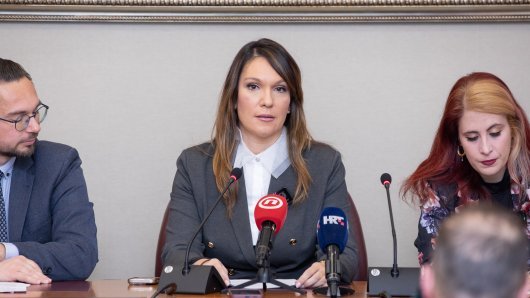The Croatian Labour Party has sent a letter to National Bank (HNB) Governor Zeljko Rohatinski calling for annulment of the foreign currency clause for loans so that "the kuna can finally become the national currency," Labour leader Dragutin Lesar said on Tuesday.
"Since its introduction, the Croatian kuna has never been treated as the national currency, but as a means of payment which we convert into francs, euros and dollars," Lesar said at a press conference in Zagreb, noting that it was still a mystery who and when introduced the foreign currency clause.
Lesar said that a ban on the foreign currency clause would least suit the bankers.
"The burden of the crisis should be equally borne by the economic sector and citizens, as well as by the banks, which have even got rich at the expense of citizens," Lesar said.
Labour vice-president Nikola Vuljanic said that the foreign currency clause was inherited from the period of hyperinflation in the former Yugoslavia in the 1980s, adding that this practice should be banned because it was damaging to citizens, to the government and to Croatian enterprises.
"In the six months of this year the banking sector earned a profit of 2.22 billion kuna, of which at least 500-600 million from the foreign currency clause," Vuljanic said.
Vuljanic said that in the present situation, when the devaluation of the kuna was being prevented from week to week, it would be fair if the banks bore at least some of the risk and that the HNB should prevent this unjust practice because it was an instrument of protection of both monetary sovereignty and the sovereignty of citizens.
Rohatinski later said in his response that if the foreign currency clause were banned, foreign currency savings deposits and the transfer of foreign currency savings deposits into bank accounts abroad should also be banned.
"The monetary and foreign currency policy should be viewed in its entirety," Rohatinski said.
He said that the HNB expected the Labour Party "to expand its demand to include a ban on opening new foreign currency deposits and maintaining the existing ones and to appeal to citizens not to transfer their foreign currency savings deposits abroad as of January 1, 2011 when foreign currency liberalisation takes effect."
"Only such an expanded demand can be consistent, of course, with consequences that are not hard to predict," Rohatinski concluded.






![[ANKETA] Potrošači i Most traže da kuna živi još godinu dana. Što vi kažete?](/media/thumbnail/500x300/2119594.png?cropId=2735798)





























